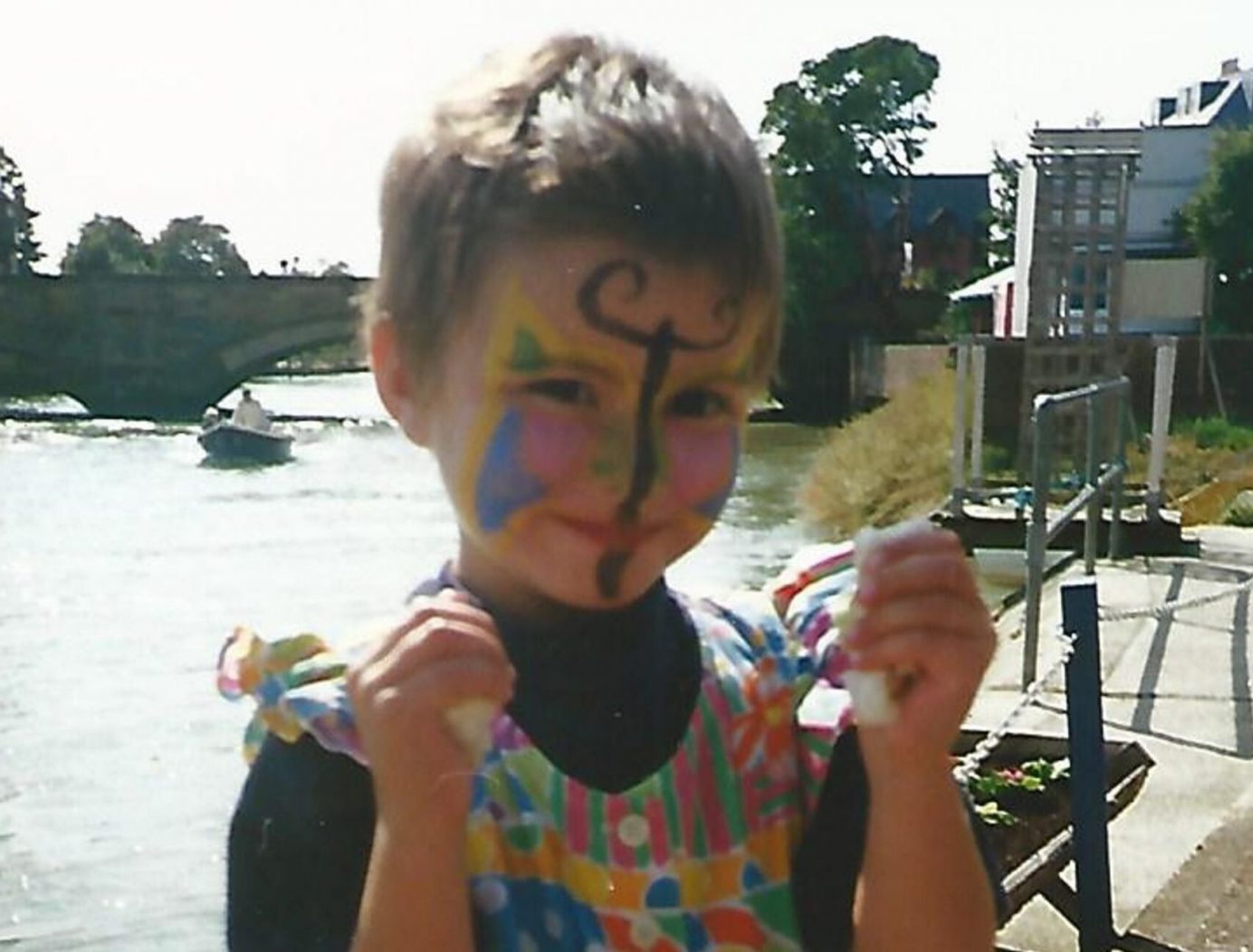
Being Pulled Apart: Megan's Story
March 27, 2018
“Trying to be normal for the rest of the family, it’s a big deal. Your kid has cancer and might not get through it, but you can’t carry on thinking like that. Life’s normal and that’s the only way you can actually survive.”
Megan Owen was three years old when she was diagnosed with acute lymphoblastic leukaemia.
This is her story, as told by her mum, 20 years later.
HOW DID YOU FIND OUT ABOUT MEGAN’S ILLNESS?
Leukaemia’s a peculiar disease. It creeps up on you slowly. Megan’s diagnosis came about in the strange way because I have some medical knowledge and they were using phrases like “blood count”, “low”, “preliminarily diagnosis”, “more tests”… So I said:
“What are we talking here? Leukaemia.”
“Oh! Somebody’s already told you?” the Doctor replied.
I just froze. I didn’t want it to be that. I asked if there were any doubts, but they told me they needed to run further tests.
“All the bloodwork shows it’s ALL, which is the most common childhood leukaemia”
So, that was the moment that I discovered my little girl was very ill.
WHAT WAS THE FIRST THOUGHT(S) THAT WENT THROUGH YOUR MIND?
There’s nothing. You are just numb. Then all of a sudden, “oh god, leukaemia”.
“How do I tell her sisters?”
“She’s going to lose her hair.”
“Is she going to die?”
You don’t believe that this is really true. You tell yourself it isn’t, it can’t be – this is my little girl. It only becomes real when you actually have to tell someone.
I was doing pretty well and headed home after being in the hospital with Megan for a few days. I thought “hmm, I ought to ring a few people and let them know what’s happening because I won’t be able to look after so-and-so’s child after school”. So I rang up, I told them, and then I went silent because I’d actually said it. Until then, I could pretend everything was normal.
DID YOU TELL MEGAN WHAT WAS HAPPENING TO HER?
I don’t think she ever realised how poorly she was, maybe once she lost her hair. I never told Megan what was going on, because I like to keep it light and fluffy.
TELL US ABOUT MEGAN’S TREATMENT.
Going through treatment is really tough – they give you this big schedule. Megan was having this horrible drug which wipes out the immune system, so she couldn’t have any visitors. She was on an isolation ward, where there’s a big glass window and a phone to speak to her Grandma through, but she couldn’t cuddle her.
She’d have to take an antidote to that drug, otherwise the other drug would kill her. Every night, she’d have her urine checked and of course she couldn’t sleep.
Then she loses her hair and she doesn’t look like your daughter anymore, she just looks like one of those poor children you see on the telly and you’d turn and say “oh how awful, how would you cope?” and there you are, coping.
And after all that, you wonder – is this treatment going to work?
What happens if it doesn’t?
I would say to anyone going through treatment that you can’t think like that. Don’t ask the questions, because you just have to live in that moment because that’s the only way you’ll get through. You have to believe you’ll have the good outcome, because by constantly worrying, you’ll lose the time you have with your children.
So, you just need to carry on and do the best you can do. Which is all you can ever do.
MEGAN WAS IN HOSPITAL FOR LONG STRETCHES OF TIME, HOW DID YOU MANAGE?
All of our time was spent in the room, because there was nowhere to play. It was very claustrophobic. We just constantly watched tele, with Megan’s favourite film on repeat. You were on the ward for three or four nights at a time, sleeping on a single camp bed which I don’t think they even sell anymore because it’s so uncomfortable!
I was away from my husband and Megan’s sisters and that was hard. We tried to be as normal as possible, because that’s important when you’ve got a child that’s very sick. Birthday parties were difficult, trying to make a cake on time.
You just felt like you were being pulled apart really.
I had to be in hospital with Megan, because she was going through all these big blocks of chemotherapy, but then suddenly it was Parent’s Evening or Melissa becoming a Rainbow, so I had to rush back from hospital to make sure I didn’t miss it.
Trying to be normal for the rest of the family, it’s a big deal. Your kid has cancer and might not get through it, but you can’t carry on thinking like that. Life’s normal and that’s the only way you can actually survive. What are you going to do? Break down? You can’t. You’ve got to be there for everybody and that’s actually the hardest bit. People come up to you and they’ll say “so, how are you today?”, but you don’t want them to.
You’re pretending that you’re okay, when really – you’re not.
LOOKING BACK ON THIS EXPERIENCE, HOW DO YOU FEEL?
It really was a terrible time, there’s no doubt about it. But, you meet some extraordinary people along the way. Yes, we lost some friends – I attended three funerals whilst Megan was under care, but being with other people is really important and it helped to speak to families who were going through similar things.
Thinking back, there was a lot of isolation for myself, Megan and her sisters. Having a communal area, like the rooms at a Ronald McDonald House, as somewhere to escape, even for a little while, to make a coffee or have a quick nap would have been amazing – it was just so full-on for us.
I think the siblings suffer a lot, quietly. We had some marvellous friends who would take the girls away to her farm for a week or to the theatre and just gave them some normality.
Because their life isn’t normal. Mum’s not there, Dad’s not there, your little sister’s not there.
You aren’t chasing her around the garden and you can’t pull her hair because she hasn’t got any for you to pull anymore.
SO, HOW DOES YOUR STORY END?
It’s not forever and one day those frequent blood tests become less frequent. You stop worrying about her temperature. You stop asking yourself whether you need to rush her to the hospital.
And then, one day, they say to you “actually, she’s cured” and you only need to go back once a year.
We had a good outcome, an extraordinary outcome. We were lucky. It’s not that for everyone, but you have to believe it will be and cherish the time you have with your family.
THIS YEAR, WE CELEBRATED MY LITTLE GIRL MEGAN BEING 20 YEARS CANCER-FREE.
I’ve been blown away by Ronald McDonald House Charities and the House which Megan works at. She has dedicated herself to making a difference to families that are going through a similar situation so it isn’t as hard on them as it was for us, 25 years ago.
Help us provide free home away from home accommodation to support families with children in hospital with a donation.
